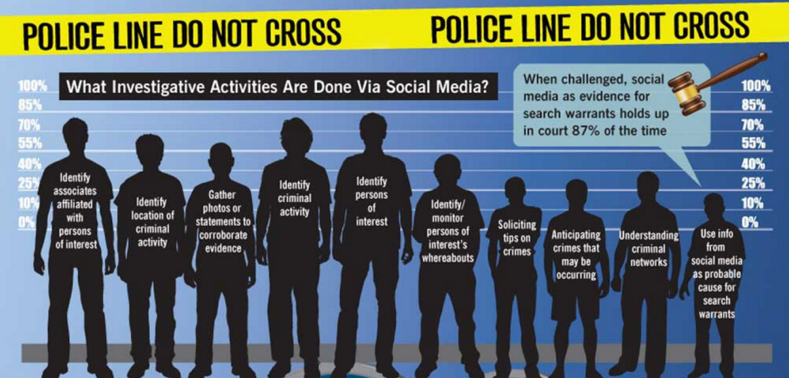Before you start your search for someone in prison it is important to know some important terms.
Prison – also known as a penitentiary or correctional facility, is a place in which individuals are physically confined and are deprived of a range of personal freedoms. Individuals held within prisons and corrections facilities have been either charged with a crime or convicted of a crime. Individuals who have been charged with a crime are incarcerated until they are brought to trial or released. Those who are officially charged with a crime will remain in a prison or jail facility until they completed the duration of their sentence.
Inmate – a person confined to an institution such as a prison (as a convict) or hospital (as a patient).
Corrections – refers to the supervision of persons arrested for, convicted of, or sentenced for criminal offenses.
How Do You Find Someone in Prison?
1) Try using the website Vine. VINE is a website that lets victims of crime and other concerned citizens access information about offenders. The service is available via the website, a mobile app, and a toll-free number. Victims can register to receive alerts about inmate status changes via phone, email, and text.
To find an offender, click on the “Find an Offender” icon and select the appropriate state. From the next page, enter the incarcerated person’s last name and first name. Alternatively, you can enter their inmate ID number, if you have it. In addition, you can click on the “Advanced Search” link to add other search parameters such as Facility Name, Date of Birth and Age Range.
2) Another option is CheckPeople.com. This website makes it fast, easy, and effective to perform an advanced people search. You can track down old friends, relatives, or classmates. All you need is the person’s first and last name but you can narrow down the search if you know what state they are in. Search results will reveal detailed information including criminal records, civil records, marriage license(s), and more.
How to Find an Inmate in a Federal Prison
To find someone in a federal prison, use the Federal inmate locator. This search tool allows you to search a database of federal inmates who were incarcerated from 1982 to present. Once you find the individual, you can use the Federal prison facility locator to learn more about the specific facility where they are being held. This search provides the details on such things as the type of prison and the security (e.g. minimum security, maximum security, etc.).
You can lookup inmates two different ways:
1) First and last name (required) and middle name, age, race, sex (optional)
2) Inmate number from the: Bureau of Prisons (BOP) Register, D.C. Department of Corrections (DCDC), Federal Bureau of Investigation (FBI), or Immigration and Naturalization Services (INS)
How to Check an Inmate’s Background
If you need to learn more about someone who is incarcerated, a BeenVerified Background Check Report allows you to search billions of public records online in just a few seconds. You can search for criminal records, arrest records, bankruptcies and more. In addition, you can find people using address, phone number and email search. BeenVerified offers an easy and affordable way to run a background check.
Federal Prison Records 1982 – Present
The Bureau of Prisons (BOP) maintains records of federal prisoners released after 1982. You can use the Inmate Locator to find out when a prisoner was, or is expected to be, released. To learn more about an inmate, submit a Freedom of Information Act request to the BOP. Also include a completed Form DOJ-361 (PDF, Download Adobe Reader).
The BOP Library provides a wealth of resources on corrections, criminology, and related fields.
State and Local Prison Records
For state and local prison records, contact the state or local corrections department.
Prison and Prisoner Resources
Following are resources for prisons, correctional institutions, jails, and inmate searches.
• Amnesty International – Amnesty international is a global network of human rights activists who campaign to end abuses of human rights. Their website provides resources, news, and data on human rights abuses around the world.
• Corrections Connection Network – Provides news, data and vendor intelligence for the corrections community. Provides resources, tools and forums for corrections professionals. Also a great place to stay in touch with the latest news about what is going on within the system. Includes links to inmate locate queries for each state.
• PrisonMap.com – PrisonMap.com shows aerial photos of prisons in the United States.
• Prison Policy Initiative – Attempts to document the impact of mass incarceration on individuals and communities in an attempt to improve the criminal justice system. The organization produces cutting edge research to expose harm created by mass incarceration and then sponsors advocacy campaigns to create awareness about the issues.
About Us:
We have been mining social media since 2007 for our clients. By utilizing best in class software programs, we offer a service called eChatter.
eChatter works with you to obtain your objectives in a fast, accurate and reliable facet. By keeping our strengthened principals, yet evolving with this industry, we lead in social media monitoring. Since 2007, we have been dedicated to providing our customers with the most authentic data.
We offer:
• Deep Web Scans
• Jury Vetting
• Jury Monitoring
• Quick Scan
www.e-chatter.net
(866) 703-8238






